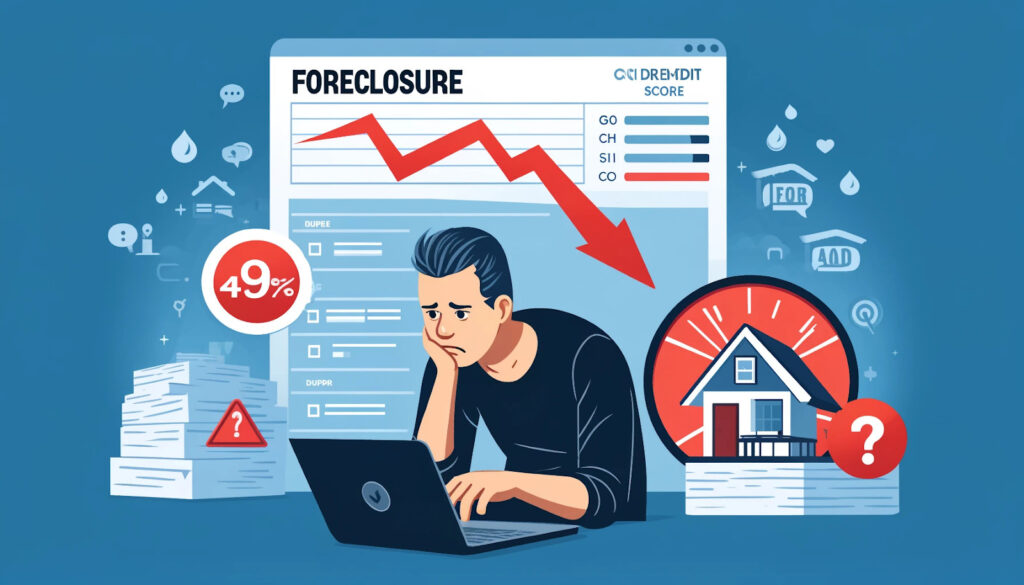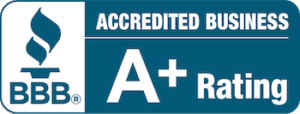Foreclosure can be a devastating event with long-lasting effects on your financial health, which makes it necessary for anyone who is in or recovering from this situation to know what it does to their credit. Credit score, credit history and your borrowing ability are some of the areas where it hits besides your immediate loss of home.
This is a comprehensive guide that will examine what foreclosure is, how it affects your credit report and scores, as well as some possible ways of developing credit after losing a home through foreclosure.
There are also ways to prevent foreclosure or perhaps even find substitutes for going through such legal processes as a result of not paying your obligations (Debt Payment Failure).
This manual will provide insights for those who might be going through foreclosure as well as those who want to know about its long-term effects.
Understanding Foreclosure
When a homeowner misses their mortgage payments, the mortgage lender is forced to take back the property. The cycle commences following a number of defaulted payments and primarily consists of legal processes. Preventive steps can be taken by property owners, if necessary as they pass through this process.
If foreclosing against a debtor, this means they failed to pay back a loan used for acquiring a home. Such financial crises could result from multiple causes, including family tragedies, businesses going bankrupt or poor budgeting skills which can lead someone into taking up credit for home acquisition. Being aware of what happens at every step during foreclosure will help one get ready and perhaps avoid complete loss of personal estates.
Foreclosure doesn’t only affect your house but also has a great impact on you financially. This is because it is one of the major blemishes that can be entered in your credit report pulling down your credibility rating as well as causing inability to access credit facilities in future.
There will come a time when understanding this and acting appropriately may be too late if you would like minimal long-term harm.
What is Foreclosure?
Foreclosure is when a lender legally takes hold of property because the person who bought it cannot pay back their loan. This happens first by not paying any money for about three or six months; then somebody working for the bank – known as the creditor or servicer – will send an official notice called Notice of Default(NoD) starting off this process.
Payment? Isn’t it too late…? Of course not! The timing of this depends on what type of lender you are dealing with (some banks give more grace for late payments than others) and how long you’ve been without paying on your obligation…
The homeowner now has only a short period in which they themselves should try to sort out their problem by settling their mortgage arrears or entering into talks with their financier. In case of failure or refusal by the homeowner to act upon resolving the matter, then the property is auctioned at an execution sale. The sale price is used to pay off any remaining mortgage debt out of the house
In the future, getting new credits can be difficult as foreclosure negatively affects score reports. Consequently there is a need to understand how foreclosure works for prevention purposes…
Credit History and Foreclosure
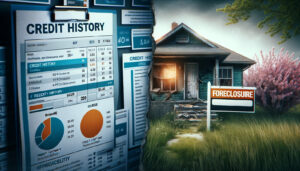
The credit history which tells about your amount of borrowing and how you have been repaying is composed of mortgages, credit cards as well as other loans. The moment there is foreclosure on your credit report this causes a lot of harm to your credit history. This negative indication may stay in the credit report for seven years.
A foreclosure affects your credit score through showing failure to meet financial obligations, which is taken into consideration while creating credit scoring models. Having such a thing on your credit report leads to massive drops in scores hence challenging future borrowing capacities.
For you to have a good credit history there are certain things that need to happen; paying back money promptly and borrowing within your means; all these things mean having responsible financial behavior some call it character.
However after facing foreclosure it would require time as well as a lot of hard work in order to rebuild one’s creditworthiness back again. Understanding how foreclosure can negatively impact your credit history may enable you to take some measures in an effort to manage or avoid such effects.
How Foreclosure Affects Credit Scores
When a home is repossessed it can have a significant impact on one’s credit rating since sometimes one experiences a big decline history after such incidences have been wound up; For example per FICO company around 100 all the credit scoring companies from way up to 160 points go down for people who previously held excellent credit status.
For a lot of people right after a house gets taken away, their credit scores end up going down a lot. To some creditors, this is a sign that they are not financially stable enough while borrowing money from them poses great risk leading to higher interest rates or denial of loans altogether for several years ahead.
In order to rebuild your credit following a foreclosure one has to be patient and persistent in their actions. Concentrating on making payments on time, paying off any outstanding debts and gradually raising the credit utilization can help raise your credit score.
Credit Report Implications
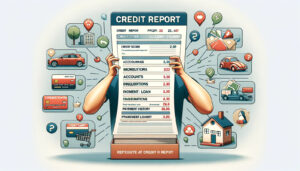
If someone misses one first mortgage payment, then it will take over 7 seven years before foreclosure appears on their credit report. This period makes it so foreclosure remains a big obstacle when trying to access fresh credit facilities. Before they approve anyone in need of loans or credit, creditors, landowners, and some employers usually evaluate his or her record concerning defaulting tendencies in payments.
A foreclosure listed on your credit report shows previous money problems. To make up for it, there may be raised interest rates with unfavorable terms as regards borrowing limits applicable to any credit accorded. The more familiar you become with how foreclosure impacts credit scores while at the same time checking your credit reports regularly would enable you to take necessary measures aimed at ensuring that your credit rating is healthy.
You should always monitor your free credit report, for possible mistakes and disparities. This is because each citizen is entitled to not beyond one free annual credit report from three big credit bureaus. By doing this, you will only avoid any inconveniences plus remain up to date with various issues yet to be covered.
Mortgage Payments and Credit Scores

Mortgage payments play a significant role in deciding your credit scores. Making timely mortgage payments over time demonstrates financial responsibility and has a positive impact on your credit score. Conversely, failure to make timely payments or delayed payments can wreak havoc on your credit score.
The impact of failing to meet mortgage payments on your credit score can be immediate and significant where-by each missed payment reported the credit bureaus captures this in your credit report. It brings down your credit ratings and lasts in a stay on your credit report for seven years.
For a good credit score, you must continue to pay your mortgage on time without fail. Reach out to your mortgage lender if you are having trouble making payments to explore alternatives such as loan modification or temporary forbearance.
Missed Mortgage Payments and Credit Scores
Neglecting to pay your mortgage can lead to negative ratings from credit agencies. Bureaus report every such miss and if it lasts too long, it may bring about a lot of trouble in ratings. The first non-payment may not cause heavy loss in credit limit while subsequent ones cause significant reductions in scores.
Otherwise, if you fail to pay your mortgage you may be at risk of losing your property. This worsens ones’ credit scores even more because a foreclosure is believed to be one of the worst things that can happen to it according to scores that score things.
To avoid the negative effects of not paying one’s mortgage; it is very important for individuals to talk to their lenders. If they do not want you to lose your house in foreclosure, lots of creditors will suggest things like loan modification, repayment plans or even a temporary forbearance.
Credit Bureaus and Loan Modifications
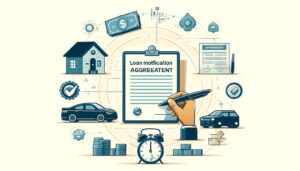
Credit bureaus play a critical role in how loan modifications are reported and how they affect your credit scores. Loan modifications involve changing the terms of your mortgage to make payments more manageable.
How Lenders Report Modifications to Credit Bureaus
In changes to the terms of the original loan agreement, lenders will treat it as a modification of loans and report credit bureaus. All modifications including the new payment, adjusted interest rates, and any other amendment are updated on credit reports.
Loan modifications have different effects on credit scores depending on the type of loan.
Knowing how your lender will communicate about the loan modification to the credit bureaus can help you decide better. Regular check-ups are also recommended on your credit reports to ascertain accuracy as well as consistency with agreements’ terms.
Rebuilding Credit After Foreclosure
To rebuild your credit after foreclosure requires careful planning and persistence. Reschedule your other accounts first. This includes making sure you pay all bills in time on credit cards, car loans among other obligations.
One way to reestablish your credit is applying for secured credit cards. For these types of cards, there must be a security deposit equivalent to the amount of the credit card balances you want issued as well. Over time using them responsibly like keeping their balances at minimum levels while continuing to pay back on time would assist in increasing the credit scores.
It is very important that you keep checking your credit reports frequently and contest any inaccuracies. Each year, all Americans are entitled to one free copy of their credit history from each one of credit reporting agencies, the three main bureaus. To get abreast with what is happening and address what may crop up in your path of rebuilding credit.
Strategies for Rebuilding Credit

- Paying bills on time is crucial for resurrecting your credit.
- Keeping your score stable entails avoiding fresh credit lines.
- Through responsible use apply for a secured credit card that will enable you to establish a good credit history.
These strategies can help you restore your credit as well as recover financially.
How to Avoid Foreclosure
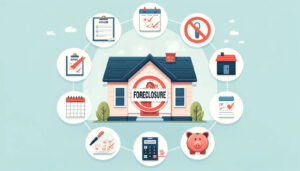
Several lending companies have intervention schemes that are meant to assist homeowners in avoiding their homes being taken away.
In addition, one can also manage financial matters well through budgeting. By keeping a close eye on your incomes as well as expenditures, you can find out where necessary adjustments should be made allowing more money into the payment of home loan without having any difficulties. Precluding foreclosure calls for good financial habits.
In case home seizure seems inevitable, there is a need to seek advice from a credit counselor or financial consultant. Early response is crucial in order to stop the serious problems associated with foreclosure.
Tips to Avoid Foreclosure
- Get in touch with your lender; let them know where you are, learn about what programs can help you.
- Develop a budget; handle your money well and set aside enough money for mortgage payment.
- Look out for professional advice; either speak to a credit counselor or a financial consultant.
Considering Alternatives
Loan modification, refinancing, or short sale are some of the things that can relieve you from foreclosure’s future repercussions. Each of those alternatives has their own advantages and disadvantages, so it is important that you understand them fully.
Loan modifications involve changing the terms of the mortgage so as to
Make paying easier Refinancing may reduce interest rates or lengthen loan terms thus lowering monthly payments Short sale is when you can sell your home below what is owed to the lender
Deed in lieu of foreclosure is an alternative by which title to property is voluntarily transferred back to the lender in order to prevent foreclosure. This could be less harmful to your credit score than foreclosure itself. For determining which solution is best in your case you may seek advice from a financial consultant too.
Conclusion
How does foreclosure affect your credit?
A foreclosure impacts your credit history, credit score and how you will be able to secure future financial loans for an extended period. Foreclosure can cause significant financial damage with lasting consequences for credit ratings and future financial prospects.
When it comes to getting back on track financially after going through foreclosure, there are three factors to be considered; understanding the foreclosure process itself; understanding its impact on your credit score, even better taking steps that would enable you to rebuild your credit. These include; using secure credit cards, making payments on time among others that will ensure you get true value from such initiations in your life once more while also avoiding being labeled bankrupt when those companies that lend money have all these in mind before giving out loans which means they would never give such a person any loan no matter their circumstances otherwise he/she will never know whether they could really ever become approved anymore or not regardless ever since their credit history has gotten spoiled so much because one never gets such information without asking first unless one asks directly which wasn’t easy either.
Even though it is not easy to deal with the threat of foreclosure on your home, anyone can overcome it through their own effort without giving up on life. This is because every small step taken towards improving your financial status works in favor of your credit health by creating more secure financial prospects.
Have you ever lost a house due to foreclosure? If yes, then please share your experience as regards rebuilding credit starting from that point in time until today; maybe someone else can benefit from what happened to you as well as use those same guidelines instead of trying to come up with new ones alone because there was nothing wrong with them whatsoever beforehand. In the comments section below share any advice you have based upon your past foreclosures and journey to financial recovery.
Your story could help others who are on a similar path because it sheds light on how people emerge from such situations.

